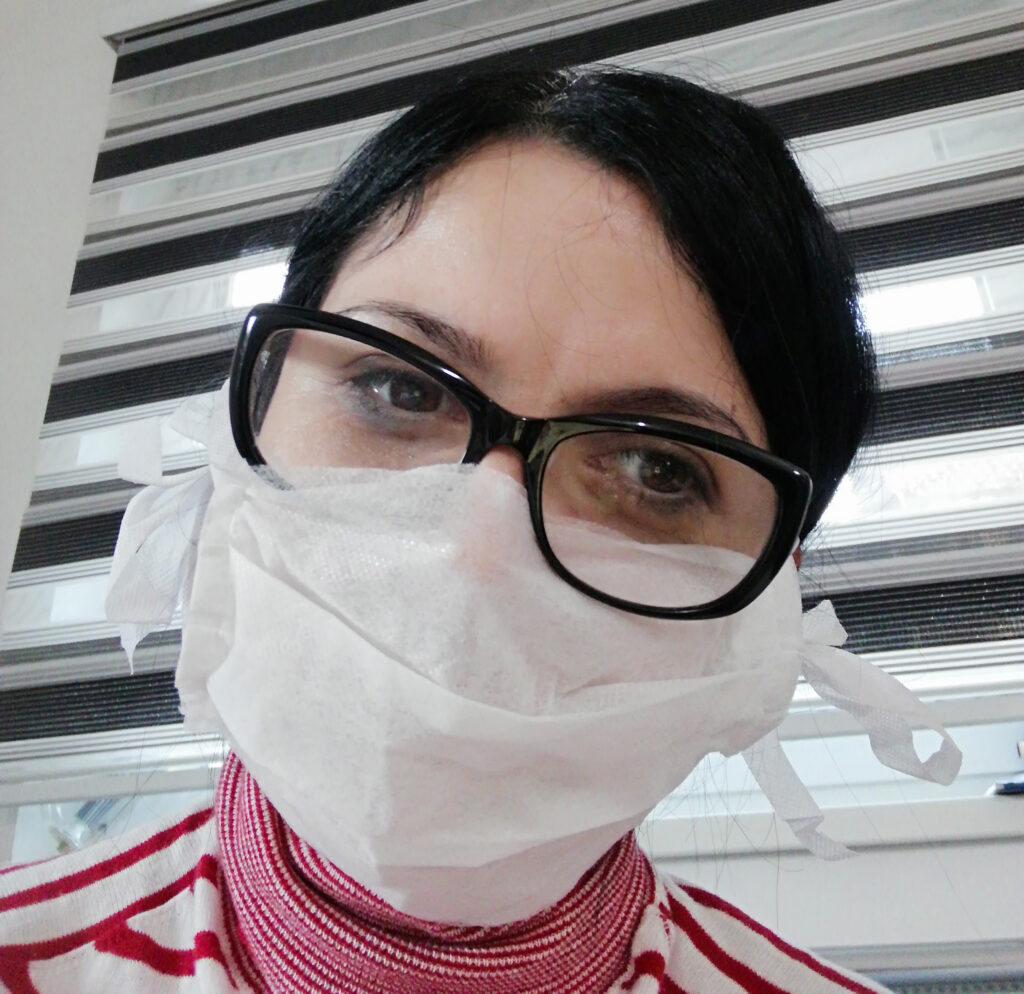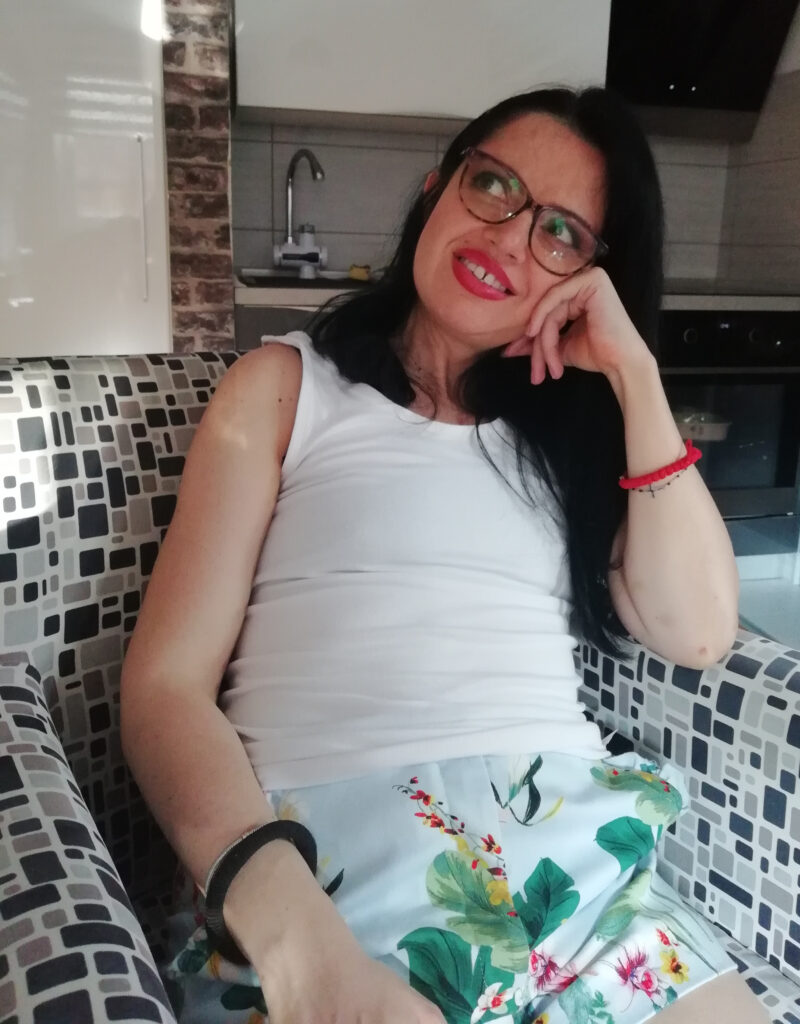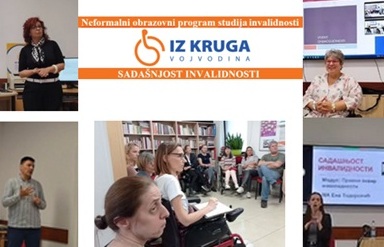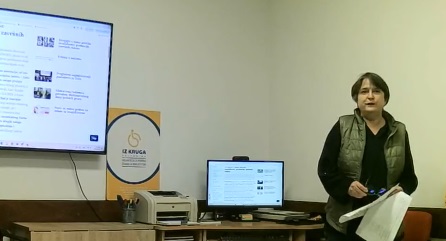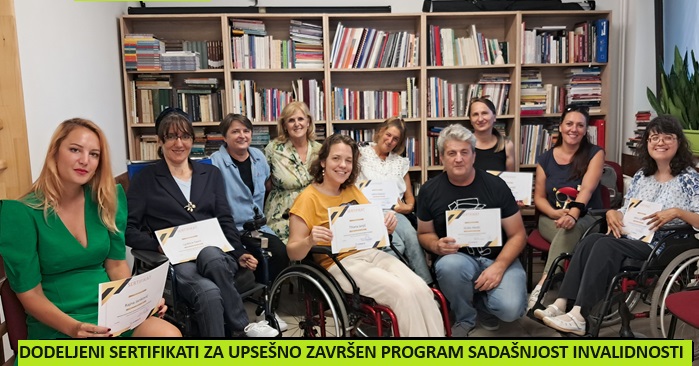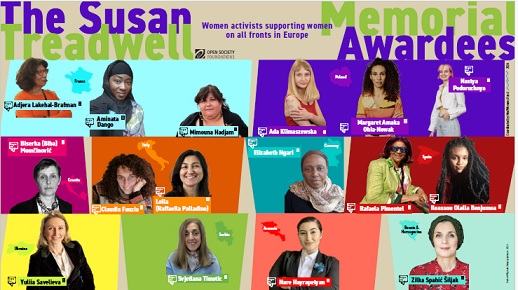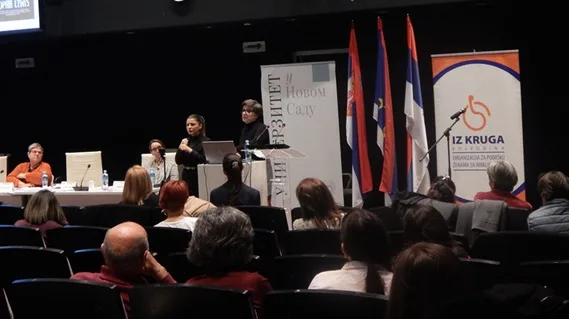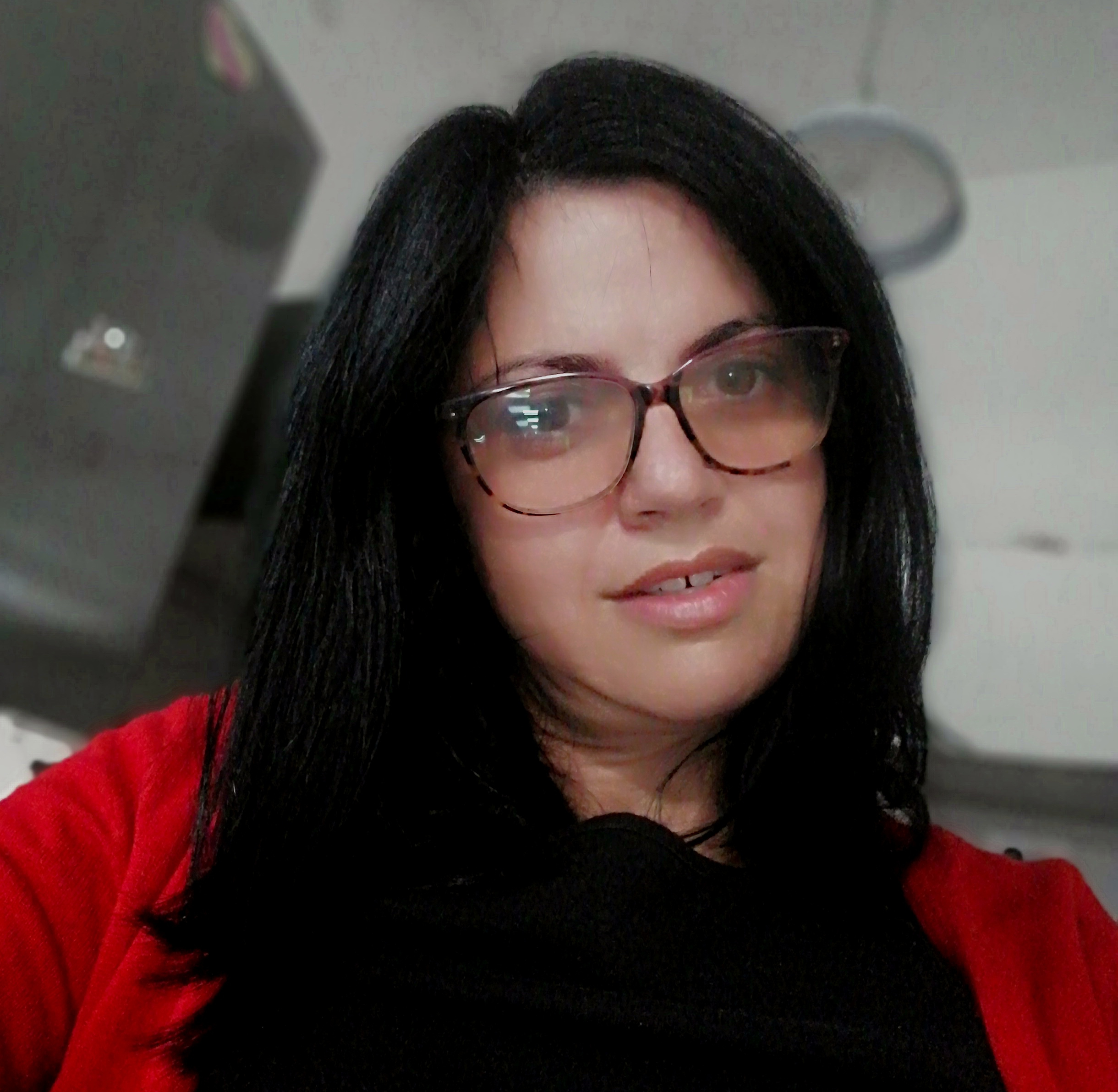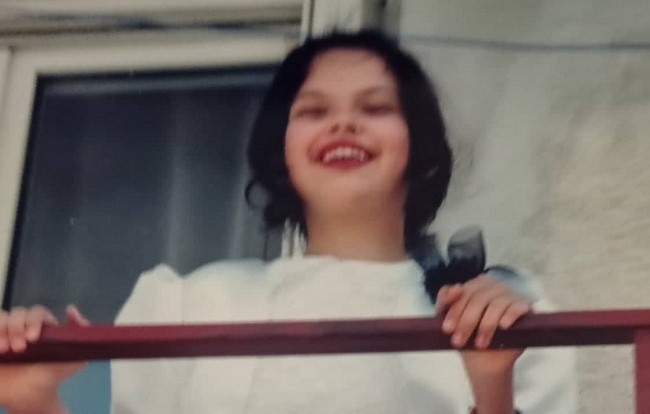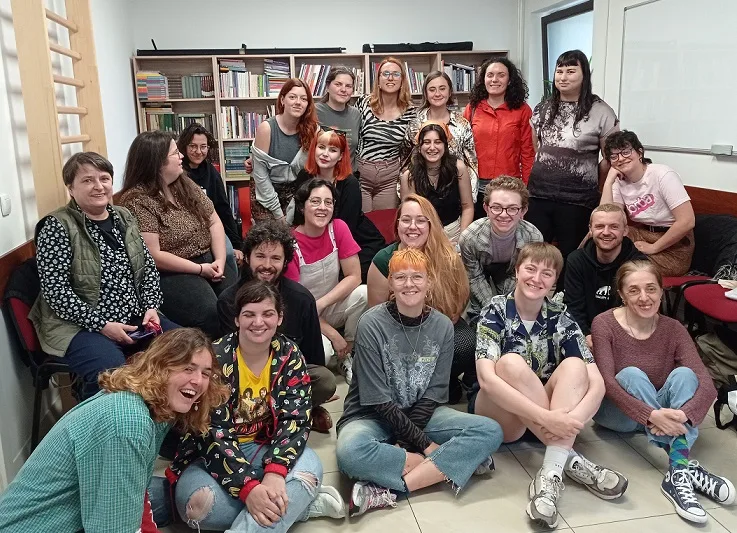The pandemic significantly affects the everyday activities of individuals, and we all depend on experts, crisis teams and politicians who create legal measures and regulations. It has become evident that measures in response to the current crisis have negative consequences in other fields. Combating the Corona virus can be used as a reason for limiting human rights in the field of sexual and reproductive health, especially affecting women and other marginalized groups. The pandemic represents a threat to the enture health care system, and the protection of sexual and reproductive health is additionally threatened. The new situation diminishes access to existing support and health services, creating a risk of depriving women of the possibility of choice and deciding about childbearing. For women with disabilities, the pandemic increases existing inequalities and further complicates the challenges they face.
The organization ...IZ KRUGA – VOJVODINA in cooperation with the UNFPA – United Nations Population Fund, is implementing the project Women with disabilities capacity building for advocating their sexual and reproductive rights in five local communities in Serbia: Kragujevac, Raška, Temerin, Užice, Vranje. It is important that professionals, service providers and policy creators focus their attention to this topic and the needs of all. Sexuality is an essential part of identity and a basic life need, even at times of crisis. Everyone has the right to information and health care, both at times of crisis and after it. What advocacy skills should be used to put a stop to the exploitation of the crisis for limiting sexual and reproductive right?
Through a series of interviews with women with disabilities, we learn about the challenges they face regarding the achievement of sexual and reproductive rights, how they cope with daily microaggression in this field, how they deal with the new pressures of the crisis period, what support services and additional self-advocacy tools they need. Below are the experiences of Marija Karadarević, a poet from Užice.
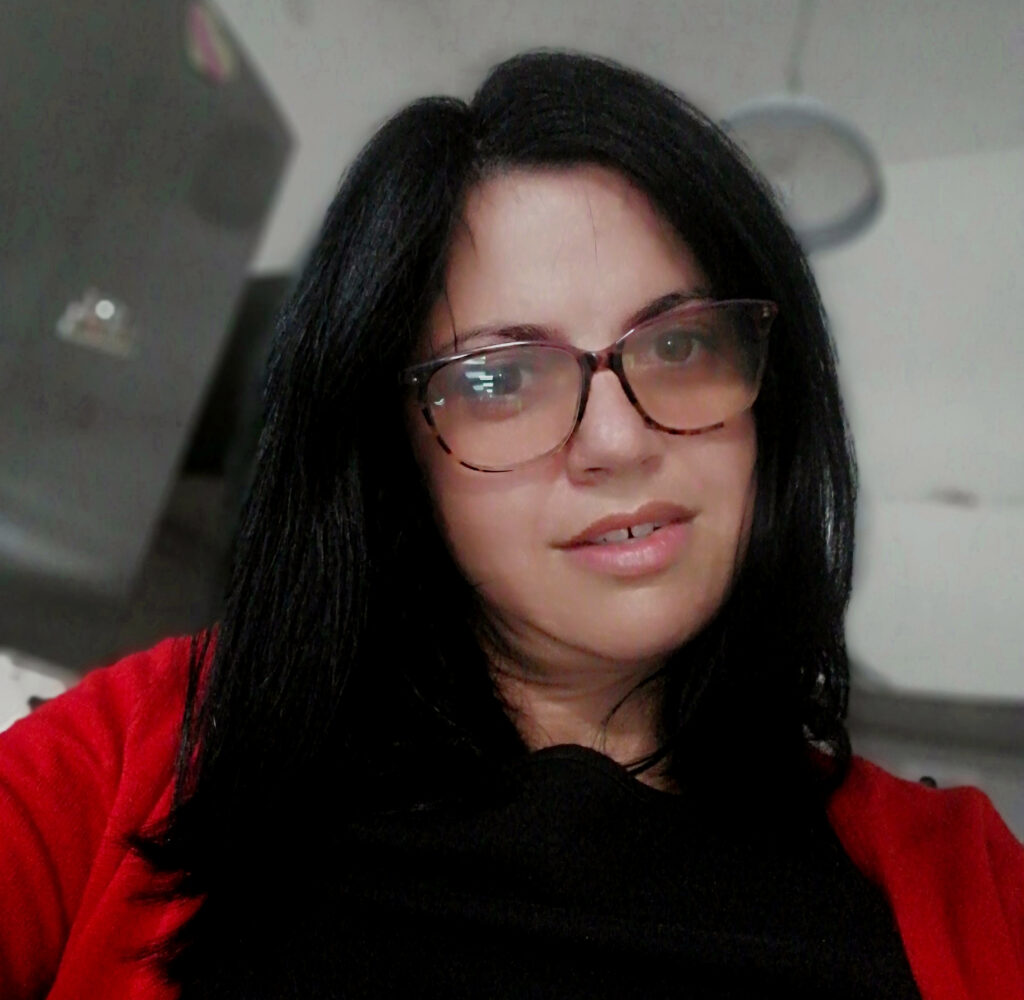
A brief introduction, your work so far, achievements, hobbies and interests.
MK: – I was born in in Užice, in 1982. I work as an operator for the Telekom telecommunications company. Occasionally and with great pleasure, I also act. I write poetry. So far, I’ve had my work published in several books as part of a group of authors and two independent collections: Most na vetru (Engl. Bridge in the Wind) (2010) and Pametna žena (Engl.Smart Woman) (2019). I write what I live, without the influence of imagination or phantasy. Each poem talks about an event from my life and all the characters in my poetry are real. Some people don’t believe me when I tell them this, but the first time the rhymes came to me was literally in my sleep and I started to suffocate. I got up and wrote until morning. I was thirteen then and probably some of my piled-up experiences started to emerge and shape the verses. During the period of isolation, I wrote about nature, I’ve never experienced missing touching the ground or missing a tree before.
What is your opinion about the activism of persons with disabilities? Are you active in an association and why is it important to you?
MK: – I’ve been a long-year active member of the Association of Cerebral and Child Palsy (UCDP) in Užice. Regarding activism of persons with disabilities, I notice that younger generations are not showing particular interest in this field, it was different with my generation and older ones. The association is my base of safety, space where I feel accepted and that I belong here, which is especially important to me. As part of the Association’s activities, I participated in psychological workshops, which I consider one of my life’s turning points. We established a team that contacted members who had never visited the Association before, which had a big impact in the city. We started an acting troupe and performed with actors of the Užice National Theater. This is when I got more relaxed and became aware of myself, I stopped being afraid and feeling shame. Workshops on the topic of sexual health and reproductive rights were organized several times, but I missed them because of work obligations.
What does the term sexual and reproductive rights mean to you?
MK: – I am currently in such a phase in my life that I no longer have an opinion. I suppressed my own sexuality, because I was rejected many times. When I tried to express myself as a sexual being several times, in an environment such as ours, it was always met with prejudice and condemnation, so I put this part of my identity on the back burner. I stopped thinking about it. I do have something to say about the topic, but I am not sure it will be met with understanding. Everything that’s happened to me in life pushed me to close myself off. The problems women face depends on the level of disability and upbringing at home. Most women aren’t even aware that they are sexual beings. We didn’t have time for empowerment in that field in life, because we were busy dealing with our physical health and striving to be as mobile and independent as possible. Not even our parents see us as sexual beings. We spend years in rehabilitation and therapy, we are mostly in hospital during puberty. I didn’t have a conventional childhood, so that I could meet someone during puberty, aware of attraction and sexuality. I think we should also go back to the period we missed. Most women with disabilities have a problem with self-confidence. Friends mostly consider us their buddies, we internalize this perception until we start believing we are non-sexual. There was no one to tell us it’s not so, so we become aware of this part of our identity much later in life. For a long time, I was embarrassed to go for a gynecological check-up, as I haven’t had sexual relations. How can I explain to anyone that I didn’t have time to deal with sexuality? I started to become aware of it when I was twenty-nine.
What helped you to start dealing with your sexual identity?
MK: – Several friends told me that I AM a sexual being and that I should explore this part of myself. My family’s support meant a lot, we started talking about it and they told me I should deal with this issue, so I started thinking about it intensively, which was the starting point towards my sexual awareness. But the obstacles didn’t disappear, quite the contrary. My partner relationships mainly started with the sentence: – I don’t mind that you have a disability – and when I show initiative or clearly express what kind of emotional and sexual partnership I want, they withdraw. Then we are only friends. I remember that one of my boyfriends said: – You really don’t know anything! Inevitably, all these messages affect self-confidence and result in a need to pull back.
Do you remember any other examples of microaggression and discrimination that you were exposed to in the field of sexuality and parenthood?
MK: – I remember I was in town, my acquaintance was passing by, visibly drunk, he came up to me and said he wanted to help me. When I asked how, he said he wanted to help me feel happy once in my life, because there was no one who wanted to sleep with me. What’s my answer to that? When I’m out, I have my drink and leave. When I’m at home, I just withdraw into myself. When it comes to motherhood, they usually tell me that it’s not possible for me, that I need help, that I should be careful, because a man would surely take advantage of me and leave me alone with the child – How will you take care of a child when you’re using a walker? I’ve got a job, a flat, so everyone just assumes that a partner would only be with me because of greed, no one thinks it might be because of love. These are the general messages I got from the environment I live in.
What support services are available to women with disabilities in your city in regular times? How much trust do you have in these service networks (regardless of whether support is provided by an institution, association or informal group)?
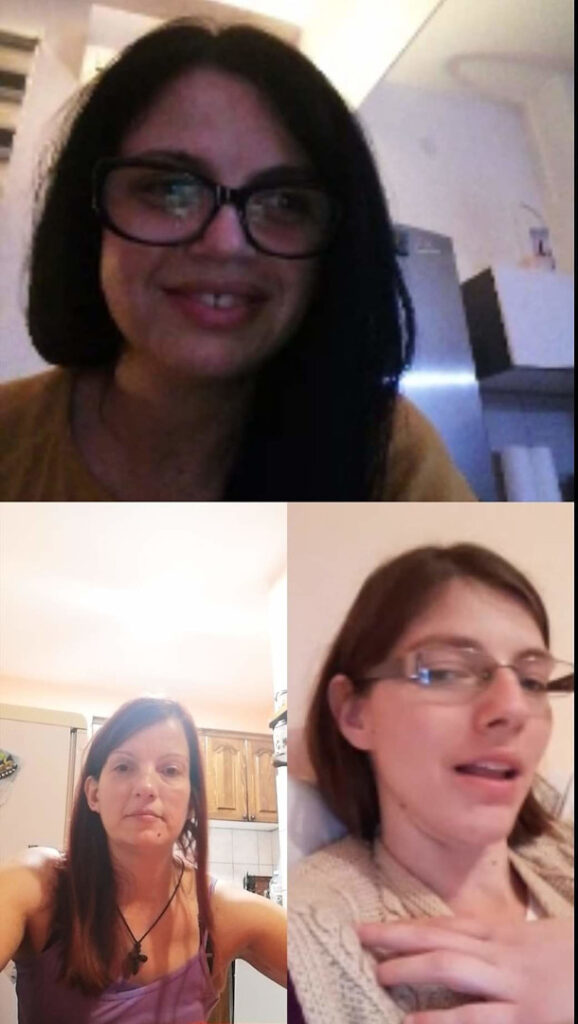
MK: – The Užice Healthcare Center secure so-called priority cards for persons with disabilities, which makes the process of scheduling and going through check-ups less complicated, because they function as access cards. Gynecological health protection at the Užice Healthcare Center, covering the entire Zlatibor County, is available to women with disabilities, but there are waiting lists and it is impossible to get to some doctors quickly. The Association provides psychological support, and the SOS helpline of the Užice Women’s Center is available to all women. Under normal circumstances, there is yoga for women with disabilities, and currently there are five of us in the group. Personal assistance and in-home support are also available to persons with disabilities. During the state of emergency, we could rely on the support of the Association for home delivery of groceries and other necessities. Since I moved to the city center, I no longer need assistance, so I don’t use these services. I mainly go to a private clinic when I need to see a doctor. Before, it sometimes happened that doctors would not speak to me directly, but to the person that came with me. They would ask: – What does she need? Why did she come? I would usually answer: – I am here and I can speak, you can talk to me. Sometimes doctors are frightened when they see a person with disabilities, they are surprised that we even came to see a doctor. But in the last several years it’s been quite different, it seems to me they have learnt something. I have a good experience with my gynecologist, she never makes suggestions or treats me differently because I have a disability.
I what ways are you ready to advocate for your rights in this field and what additional tools do you need?
MK: – It’s difficult to give and answer after this period of isolation, because we all went a step backwards during this period. I had just started to go out more, and the promotion of the book had created different opportunities and started some events. Then came the isolation and I realized I was nowhere. After the isolation, I need rehabilitation for my brain, for me to be ready for anything. It’s like I need to reset myself to factory settings. From experience, it seems to me that women with disabilities tend to hide a lot of things, so I feel bad when I talk to them, because they reflect this picture that there are no obstacles and everything is possible. But the reality is that we start relationships that we hide, relationships where it is the woman who is pulling for it to succeed, relationships where they introduce us as best friends rather than partners. At a certain point, each of us consents to this, to call this a relationship, when essentially it is not. I noticed that each man with a disability can have a woman without disabilities, while it’s very difficult for a woman with disabilities to find a partner. I went to a psychiatrist to get this clarified, and I was told that a man can’t bear to look at his reflection in the mirror, he needs a woman without disabilities who will make him more superior. Based on my experience, when a woman with disabilities is in a relationship with a man with disabilities, the relationship is at risk from two complexes: mine and his. When I was in a relationship with men without disabilities, the relationship would end under pressure by his family and close environment, that could not accept me. Whatever I do in a relationship, it doesn’t count. What counts is my walker, which everyone can see. As a woman, I face discrimination both by men with and without disabilities. There is a double standard: when a man with disabilities is in a relationship with a woman who doesn’t have a disability, he is the dude; when I’m in a relationship with a man without disabilities, then he is using me. In his case it is love, in my case love won’t even be mentioned, instead they will warn me it is inevitable that my partner without disabilities will cheat on me. My response to this was always: – If I feel good, then it’s none of your business! Women with disabilities are degraded to such extent, that I have no comment.
What changes occurred in your everyday life due to the Covid crisis?
MK: – I actually feel as if I got to the next level of the game. When I published my book, before the quarantine, I was so drained, I felt like an empty balloon. The book was a confrontation with the past and I had to process it all. Just when I though I can’t do it anymore, the quarantine happened, so I had to switch to the next level. I walk at least one kilometer each day, otherwise I usually take a taxi. Under other circumstances, I would not be able to make myself walk like now, nor would I know how far I could get. I did a lot of writing, I read all the books that were on stand-by, I cooked all the meals that I am otherwise lazy to cook. Though I saw my friends online, I do miss direct contact with them, going out, going to the cinema, the theater. I would say I got stronger, both physically and mentally. The quarantine helped me to realize all the unnecessary things in my life, what I really want and what I don’t.
What scares you the most during the pandemic?
MK: – I am not scared by the pandemic, I am worried about life after the pandemic, that is, socialization. I am afraid that we will grow apart from each other. Women with disabilities are withdrawn as it is, we need more time for socialization, and I think the period of isolation will take us back even further. I am afraid of closing up completely, that I will keep the quarantine routine I already got used to. If I keep working from home, I will turn into something I’m not. The quarantine undoubtedly jeopardizes us in the field of socialization and social life.
In your opinion, what consequences will the crisis and isolation period have on the lives of women with disabilities and their status in society?
MK: – The greatest consequences caused by social distancing will be felt in the psychological and physical state of women. Women are withdrawn as it is; I am afraid it will only intensify after this. For those women who didn’t have a job until now, it will be even more difficult to find. Those who were withdrawn, will close off even more. There will be more and more uninterested and uninformed people because everybody will be wrapped up in their own problems. I don’t think people will outright oppose wanting to consider some things, but that they will have other priorities: how to get by. Everything that we fought for will fall back. We will communicate less, as a result we will know less about what each of us needs. Most of the women with disabilities I know are dedicated to their primary family. They are too attached to their parents, brothers or sisters, focused only on that aspect of their life, and isolation has only made this attachment stronger, affecting the level of independence. We all used the quarantine period to look back at past events of our life and saw where we stand. We will get depressed, because we are rushing to achieve something we can’t, because our minds haven’t changed. My assessment is that we need more psychological workshops. We should start as soon as possible, we should work with adolescent girls, so that they keep pace with their generation in terms of development of self-confidence and sexual awareness.
What’s the best thing that happened to you during the quarantine?
MK: – A girl who liked my writing contacted me through social networks and we’ve been talking via video calls for several weeks now. This is important to me, because I didn’t lie in my poetry, my poetry is my truth, compared to all truths I’ve encountered in life. All that people wanted to know, but refrained from asking, can be found in my book. I wanted to give my city answers to questions that we are silent about, but I feel that they’re there. They were wondering: how could I be in relationships in which people cheated on me, how could I let that happen to me….I gave all my answers and said: – Yes, that’s what I did and I would do it again. The book Pametna žena (Smart Woman) is about women’s situation in general, not just about experiences of a woman with disabilities, though the poetry is permeated by consequences I faced because of my disability. One of my friends told me people were surprised: – How could you fall in love and write such a good book about it? Sex is not considered a normal part of our lives.
If someone gave you three minutes to share with the world the most important message on disability as part of the human experience, what would you say?
MK: – Out needs are no more special than yours, we just achieve them in a different way. We’re here even when you don’t see us.
Transleted by: Marina Ileš

